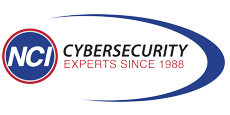How To Keep Your Laptop Secure When Using Public WiFi Hotspots
They are everywhere these days. WiFi hotspots for checking e-mail and hopping on the Internet can be found in airports, coffee shops and even most fast-food joints. But have you ever wondered, just how safe it is to connect? With the proliferation of hackers, viruses and identity theft at an all-time high, you are smart to be concerned.
Unfortunately, it is easy for a hacker to set up a WiFi spot to access your laptop, called an “evil twin.” An evil twin is a wireless hotspot that is used to lure people from a nearby, legitimate hotspot. For example, when logging in at your favorite coffee shop, you may have inadvertently logged in to an evil twin Internet connection set up by the person working on a laptop at the next table.
Just like legitimate sites, evil twins allow you access to the Internet, but in the background they record everything you are typing. Log on to your e-mail, investment web site or bank account, or buy something online, and they are recording your keystrokes.
Tip: Do you want an easy way to securely access your network and the Internet from anywhere? Call us today at 615-206-4146 about setting up a VPN for your office!
You may be asking, “How do I protect myself at WiFi hotspots?” First you need to make sure the hotspot is legitimate. You can do this by asking someone who works at the WiFi location; in fact, some businesses will give you printed instructions that include the hotspot name. Even here you need to be careful. Many times, in an attempt to make you feel comfortable, the hacker will use an evil twin name that mimics the legitimate hotspot and, on some occasions, the fake site may even show up at the top of your network list by having a stronger signal than the legitimate site.
The best protection you can have is connecting via your
company’s VPN (virtual private network).
A VPN protects your online information by encrypting your data and activity even if you're connected through an evil twin. If you don’t have a VPN, the best protection is to surf the net, but never type in password, credit card, social security, bank account or other sensitive information when connected to a public WiFi hotspot.
